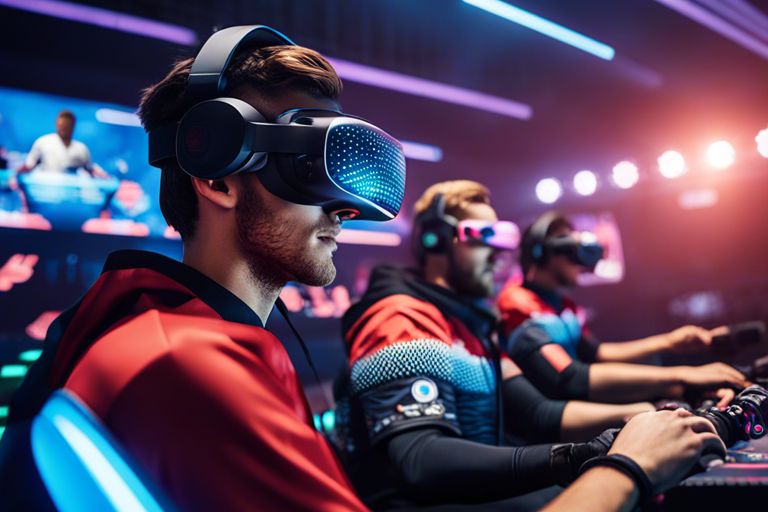Esports League enthusiasts are eagerly awaiting the upcoming FIFA Esports League season, where top players from around the world will battle it out on virtual pitches. With skilled gamers, intense rivalries, and nail-biting matches, this season promises to be one of the most exciting yet. In this blog post, we will explore into the predictions and expectations for the upcoming season, highlighting key players to watch, potential upsets, and the overall landscape of competitive FIFA gaming. Stay tuned as we analyze the trends, strategies, and player performances that could shape the outcome of this highly anticipated esports event.
Foundations of Prediction
Historical Data Analysis
Prediction: Before making any predictions for the upcoming FIFA Esports League Season, it is crucial to analyze historical data. This involves studying past performances, player statistics, team strategies, and overall trends in the esports league. By delving into historical data, we can identify patterns and insights that may influence future outcomes.
Statistical Models and Algorithms
To Prediction: Statistical models and algorithms play a vital role in predicting the outcomes of the FIFA Esports League Season. These tools utilize mathematical formulas and techniques to analyze data, identify patterns, and make projections. By incorporating various factors such as player performance, team dynamics, and match histories, statistical models can generate predictions with a certain level of accuracy.
Statistical: It is vital to choose the right statistical model or algorithm based on the specific characteristics of the esports league and the available data. Some of the most commonly used approaches include regression analysis, machine learning algorithms, and time series forecasting. The key is to find a model that can effectively capture the complexity of the esports league while providing reliable and accurate predictions for the upcoming season.
Player Performance Metrics
Individual Skills Assessment
While predicting the outcome of the FIFA Esports League season, it is necessary to assess individual player skills. Performance in key areas such as dribbling, passing accuracy, shooting precision, and defensive capabilities can greatly impact a player’s overall success in the league.
Team Dynamics and Synergy
For a team to excel in the FIFA Esports League, team dynamics and synergy play a crucial role. Strong communication, understanding each other’s playing styles, and working well together to exploit opponent weaknesses are key factors that can elevate a team’s performance to the next level.
Skills like teamwork, adaptability, and strategic thinking are necessary for teams to succeed in the highly competitive FIFA Esports League. A cohesive unit with players who complement each other’s strengths and cover for weaknesses is more likely to achieve victory against tough opponents.
Technological Influences
Role of Artificial Intelligence
Now, in FIFA esports, Artificial Intelligence (AI) plays a crucial role in enhancing the gaming experience for both players and viewers. AI algorithms are used to analyze gameplay patterns, predict strategies, and even simulate different scenarios, providing invaluable insights to players and coaches.
Impact of Training and Simulation Tools
To stay ahead in the competitive world of FIFA esports, players are increasingly relying on advanced training and simulation tools. These tools allow players to practice in realistic virtual environments, helping them refine their skills, test new strategies, and adapt to different game scenarios.
Artificially intelligent coaching systems can provide personalized feedback to players based on their gameplay, helping them identify areas for improvement. Additionally, advanced simulation tools can recreate high-pressure game situations, helping players develop their mental resilience and decision-making skills under stress.
With AI-driven insights and realistic training environments, players in the FIFA esports league have the tools they need to push the boundaries of their performance and compete at the highest levels.
Predictive Analytics in Practice
Developing Accurate Forecasting Models
Despite the complexities of predicting outcomes in the FIFA Esports League, predictive analytics offers a powerful tool for forecasting results. By analyzing past player performance, game statistics, and various external factors, accurate forecasting models can be developed to predict future match results with a high degree of confidence.
Challenges and Limitations
Practice of predictive analytics in esports is not without its challenges and limitations. One of the main hurdles is the unpredictability of human behavior in competitive gaming environments. While data can provide valuable insights, it cannot always account for the emotional and psychological factors that can influence player performance and outcomes in matches.
The evolving nature of esports also presents challenges for predictive analytics. New game updates, player strategies, and team dynamics can quickly change the landscape of the competitive scene, making it difficult to rely solely on historical data for accurate predictions.
Summing up
Following this analysis of the FIFA Esports League Season and its predictors, it is evident that a combination of player performance, team strategies, and match outcomes play a crucial role in determining the overall success of each team. By considering key factors such as player ratings, past performance, and skill levels, it is possible to make informed predictions about the upcoming season. As the league continues to grow and evolve, these insights will become increasingly valuable in forecasting the outcomes of matches and ultimately the champion. The FIFA Esports League Season offers a unique opportunity for fans and analysts alike to investigate into the world of competitive gaming and apply strategic thinking to anticipate the future of this exciting sport.







